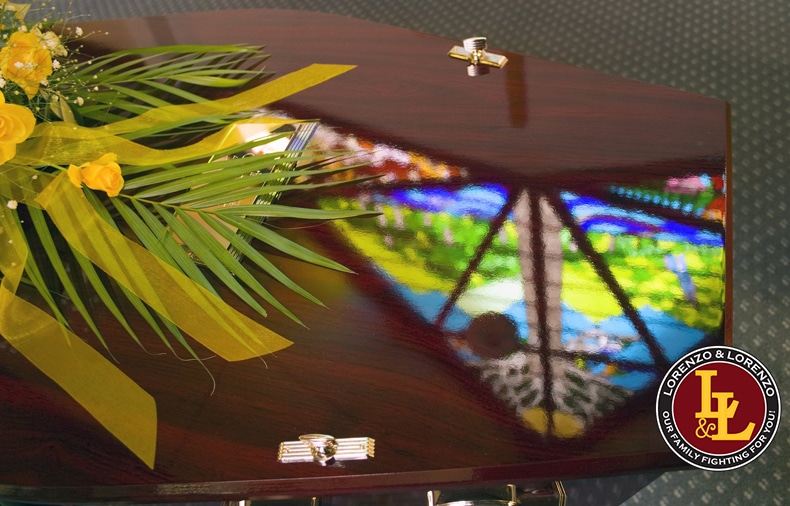
What is wrongful death and who can file a claim in Tampa, FL?
When asked about one of the most famous wrongful death cases in modern U.S. history, OJ Simpson is likely the name that comes to mind for anyone who is old enough to remember the case.
After being acquitted in his criminal case, OJ Simpson was found liable in a subsequent wrongful death lawsuit. This series of events was quite confusing to the general public.
How could OJ be acquitted of murder, but still be liable for the death of another?
The answer makes sense once you understand the basics of wrongful death.
What is wrongful death?
Wrongful death lawsuits are civil (non-criminal) legal actions that allow surviving family members to seek compensation (damages) for the loss of a loved one caused by wrongdoing. When a person dies by the wrongdoing or the negligence of another, the family of the victim can sue the wrongdoer in civil court. If successful, the victim’s family can be awarded monetary damages.
At one point in early American history, once a person died, all rights to sue died with them. This meant that a surviving family member could not sue the wrongdoer for the death of their loved ones.
Modern law has since evolved to allow the estate and the victim’s immediate family to sue any and all liable parties on behalf of their deceased loved one. “Torts” are civil, non-criminal actions where one person wrongfully caused harm to another.
Most people think that wrongful death is the same as murder, but this isn’t the case. Murder is a criminal act, which requires the government to convict a person by proof beyond a reasonable doubt.
Typically, in a wrongful death action, the standard of proof is a “preponderance of the evidence.” In a wrongful death suit, the plaintiff only has to show the wrongdoer was more likely than not to have caused the wrongful death. This standard is lower than the standard of proof in a criminal case. (This is also the reason why OJ Simpson could be found not guilty of murder, yet civilly liable for the death of his ex-wife.)
Florida’s wrongful death statute
Florida, like most states, allows survivors and the estate of the victim to sue a wrongdoer. The Florida Wrongful Death Act. (Section 768.19) says:
“When the death of a person is caused by the wrongful act, negligence, default, or breach of contract or warranty of any person, including those occurring on navigable waters, and the event would have entitled the person injured to maintain an action and recover damages if death had not ensued, the person or watercraft that would have been liable in damages if death had not ensued shall be liable for damages as specified in this act notwithstanding the death of the person injured, although death was caused under circumstances constituting a felony.”
Who can sue for wrongful death?
Florida’s Wrongful Death Act allows the deceased’s personal representative to sue the wrongdoer on behalf of the victim’s survivors. Under the act, eligible survivors include:
- Spouses
- Children
- Parents
- Brothers and sisters
What damages are available?
Eligible individuals can seek damages from the wrongdoer for:
- Loss of support
- Mental pain and suffering
- Medical and funeral costs
- Lost earnings
The surviving spouse can also seek to recover for loss of companionship. If the wrongdoer is found liable for the death of the victim, each survivor having a claim can be awarded money.
For example, if the victim had a child whom they provided support for, but their spouse was not the parent of this child, potentially the wrongdoer would be liable to the child and the spouse for separate amounts.
Wrongful death case example
An example of how a wrongful death case works in Florida is as follows:
Sue rents a car. The car rental company was negligent in their upkeep and failed to fix an issue with the car’s braking system. Sue picks up the vehicle but doesn’t notice they charged her twice the agreed-upon price. While driving the car, Due crashes because of the faulty brakes. Her spouse can seek damages from the rental company for their negligence.
However, claims under the Florida Wrongful Death Act are limited to those where the injury resulted in the death of the victim. Her family cannot seek wrongful death recovery for the double billing because it is not related to Sue’s death.
Sue’s estate may still file a separate survival lawsuit for the double billing; however, any damages awarded go to her estate and would be distributed per Sue’s will or intestate succession. With the wrongful death action, if her spouse sought recovery for loss of companionship, they would recover a specific amount of the verdict.
Sue’s spouse could also seek damages for her burial costs and medical bills. Again, if damages are awarded, they would go to the spouse and not Sue’s estate.
Why consult a Florida wrongful death attorney
Wrongful death cases are complex and require a firm understanding of Florida law. If you feel you may have a wrongful death case or have questions, you should contact one of our attorneys at Lorenzo & Lorenzo. We can provide you with more information and legal advice for your case.






